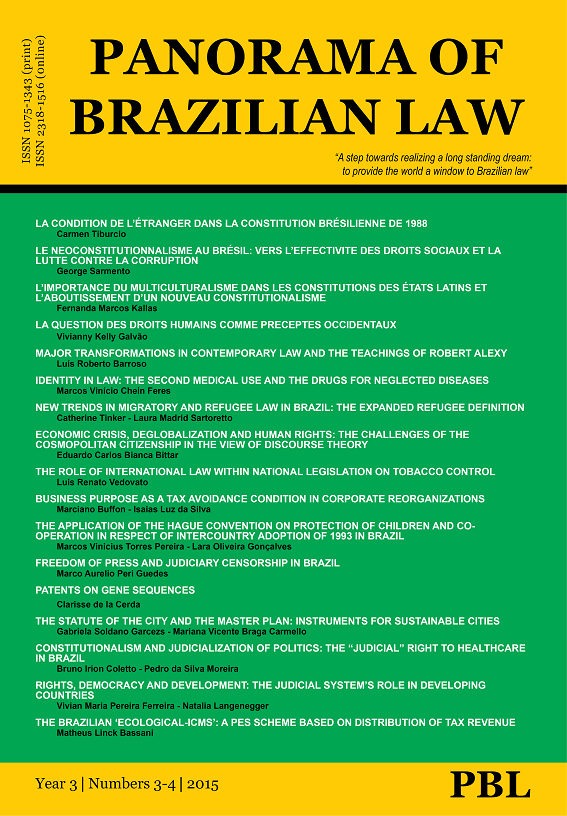FREEDOM OF PRESS AND JUDICIARY CENSORSHIP IN BRAZIL
DOI:
https://doi.org/10.17768/pbl.y3.n3-4.p276-300Abstract
This paper intends to provide an overview on freedom of press under the 1988 Brazilian constitution. Despite living the longest democratic term of Brazilian history – twenty seven years so far, the constitutional and democratic project are under a clear and present threat, this time coming from an unsuspicious player in the democratic game: the judiciary branch of the state. The 2009 Estado de São Paulo case reflects how such threat has been identified by some justices belonging to the Brazilian supreme court – the S.T.F. - committed with a democratic and constitutional culture. The threat is scattered all over the land, coming from individual members and sometimes from several states´ appeal courts of both state or federal degrees. Either we enjoy plainfully the fundamental rights or we do not live in an actual democracy, in the western liberal and bourgeois concept of it. Becoming aware of it, rising up legal resistance against such threat and spreading the news for the whole citizenship is a necessary step to consolidate democracy in Brazil and to push away authoritarian political regimes.
Downloads
Veröffentlicht
Zitationsvorschlag
Ausgabe
Rubrik
Lizenz
Panorama of Brazilian Law employs Open Journal Access policies.
Authors are fully and exclusively responsible for their submissions.
Authors who publish with this journal agree to the following terms:
- Authors retain copyright and grant the journal right of first publication with the work simultaneously licensed under a Creative Commons Attribution-NonCommercial-ShareAlike 4.0 International License that allows others to share the work on a non-comercial basis with an acknowledgement of the work's authorship and initial publication in this journal and indicating if any changes were made. If you remix, transform, or build upon the material, you must distribute your contributions under the same license as the original.
- Authors are able to enter into separate, additional contractual arrangements for the non-exclusive distribution of the journal's published version of the work (e.g., post it to an institutional repository or publish it in a book), with an acknowledgement of its initial publication in this journal.

